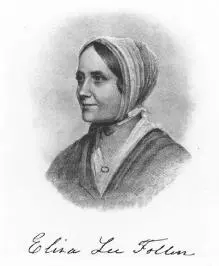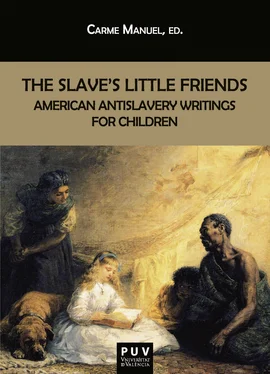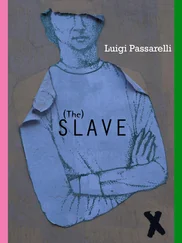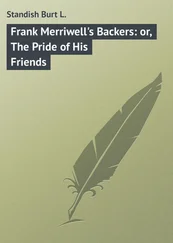Juvenile Poems includes poems on the separation of slave parents from their children and the plight of the orphan slave child, and five free-produce poems aimed at encouraging children to abstain from consuming products derived from slave labor: “The Petition of the Sugar-Making Slaves—Humbly Addressed to the Consumers of Sugar,” “An Answer to the Question, ‘Do you Take Sugar in your Tea?’” and “The Sugar Cane,” as well as Chandler’s “The Sugar-Plums” and “Oh Press Me Not to Taste Again.” As Julie L. Holcomb (116) explains, Chandler, like previous eighteenth-century English antislavery authors (Amelia Opie, Priscilla Wakefield, William Cowper, etc.) and American radical abolitionist writers of children’s literature, used “the consumer culture of childhood to teach children the importance of abstention and abolitionism” (116), and “appeals directly to children to reject slavery and the products of slave labor” (117). Children were encouraged to feel the labor exploitation that lies hidden under the surface of confectionery and the ethical reasons for their rejection of these blood-stained delicacies. Holcomb writes that these anti-sugar poems for children “coincided with non-abolitionist debates about the increasing availability of confectionery. The Moral Reformer , the Christian Watchman , the Friend , and the Boston Recorder all published jeremiads against the consumption of sugar. The Colored American warned parents of the danger of confectionery shops and, through its advertisements, promoted the purchase of free-labor sugar.” This anti-sugar literature flourished at the same time that other reformist movements spread throughout the Anglophone transatlantic world. The consumption of sugar was thus linked not only to an urge to boycott an economy based on slavery but to the moral dangers of intemperance. As with anti-alcoholic writings, children were the target of preaching about abstaining from an abusive consumption of sugar as a way to foster discipline and were encouraged to be virtuous citizens.
THE LIBERTY CAP(1846) by Eliza Lee Cabot Follen includes several stories against slavery. The success of the book is evidenced by the several reprints that followed its initial publication, and its title echoes the aspirations towards freedom and the pursuit of liberty with which the Phrygian cap came to be associated during the eighteenth century, especially during the American War of Independence and the French Revolution. The 35-page volume includes two poems, “Am I not a man and a brother?” and “Lines on hearing of the terror of the children of the slaves at the thought of being sold” and four brief stories, “The Liberty Cap,” “Pic-nic at Dedham,” “Dialogue” and “Agrippa.”
Eliza Lee Cabot Follen (1787-1860) was a reformer, educationalist and a children’s writer and, according to Marcus Wood, she became “one of the most revered figures” in Boston antislavery circles (2003: 523). She belonged to a prominent Boston family, and was a follower of Unitarian William E. Channing. Married to Charles Follen, the first German professor at Harvard University, in 1828, both of them became outspoken antislavery activists, a reason that caused her husband’s appointment not to be renewed at that educational institution. She was co-founder of the interracial Boston Female Anti-Slavery Society in 1833, together with Maria Weston Chapman, a leading Garrisonian abolitionist and editor of The Liberty Bell, by Friends of Freedom , an annual abolitionist gift book.

Follen authored several books and works for children, and edited the first American edition of Grimm’s fairy tales as well as the Sunday school magazine, The Christian Teachers Manual (1828-1830). Her interest in the moral education of the young drove her to translate the French pedagogue François Fénelon’s work and published Selections from the Writings of Fenelon, with a Memoir of his Life in 1829 (Boston: Boston, Hilliard, Gray, Little, and Wilkins). In her introduction she justified her work as a labor of love because “The pure and holy influences of such a spirit should surely be diffused as widely as possible, and this is the design of the present volume” (v). Fénelon deserved to be known by English speakers since “His heart belonged to no creed, no country, but embraced the earth, and soared to heaven. He loved all that was lovely on earth, and his aspirations were to all that is elevated above it. This putting forth of the affections from and above himself, was the ennobling and distinctive trait in the character of Fenelon. He loved men, not because they were of the same race as himself, but because they were susceptible of virtue and happiness. He loved God, not merely as his benefactor, but as the great source of felicity to all sentient existence” (iv).
After the death of her husband in January 1840, among many other writing assignments, she edited The Child’s Friend and Family Magazine (1843-1850), a second Sunday school publication, and a variety of books for children and some titles specifically concerned with the slavery question. As Elizabeth Bancroft Schlesinger writes, Follen was “an active member of abolitionist societies both in Boston and Cambridge, she lectured and wrote countless tracts and helped to organize antislavery bazaars to raise funds for the cause” (166).
In a small volume titled To Mothers in the Free States (1855), which is part of the eighth series of antislavery tracts published for free distribution by the American Anti-Slavery Society, Follen appealed to American mothers to act against slavery. Her arguments distinctly explained the uncompromising impetus that emerged in American antislavery writings for children and their authors. In her tract, she discussed the role of mothers in the slavery debate and enthroned American mothers as the essential guides for their children’s indoctrination in the evils of the system. As guardians of their families and keepers of the sacred domestic space, they were endowed with the responsibility of fostering in their sons and daughters an unquestionable sense of racial justice that would keep America loyal to its republican principles of equality and justice. Follen declared:
I speak to mothers. The mothers in the Free States could abolish slavery; American mothers are responsible for American slavery. […]
You will, perhaps, say to me ‘these things may be as you state them, but what can women,—what can we mothers do? why make ourselves miserable at the thought of these terrible facts, when we can do the poor sufferers no good? what can we do?’ I answer, you can do everything; I repeat, you can abolish slavery. Let every mother take the subject to heart, as one in which she has a personal concern. In the silence of night, let her listen to the slave-mothers crying to her for help. Let her prayer for them be her “Soul’s sincere desire.” Let her promise before God to do all she can for their redemption. Let her be faithful to her vow, “in season and out of season,” and watch every opportunity and means of doing, or saying, or suffering anything she can for these poor, dumb and helpless creatures. Let her seek for light how she can best serve their cause. Let the desire to serve thorn go with her where she goes, and dwell a perpetual presence in her home. Let her heart, her understanding, her thoughts, be ever on the alert in their cause. While she must ask for heavenly wisdom to guide her, she must take no council from her fears: she must call no man master. […]
Many will say, “Suppose all our sons were sincerely devoted, what could they do? What steps can they take? The Free States have no power to abolish slavery. Show us some practical way.” It is an old, but true saying, “A will finds a way.” But who does not know that the votes from the Free States made the Fugitive Slave Law and passed the Nebraska Bill? The Free States support Slavery. The Southerners are the Slave Owners , we are the Slave Holders . Put an end to the immoral participation of the Free States, and their almost as criminal indifference, and American Slavery could no longer exist. We are the greater sinners, for we have the baser motives for our share in this iniquity. A selfish fear of harm to ourselves keeps us quiet, while we see our Republic scorned or mourned over by the lovers of Justice throughout the world. No old sacred remembrances, no time-honored prejudices, no tender associations of early and childish attachments, none of all these things can be pleaded in extenuation of our conduct. Not one of us thinks Slavery right; nay, we declare it to be a sin; out of our own mouths we are condemned. […] I say, then, to mothers in the Free States, you have before you a solemn duty, a glorious work. […]
Читать дальше













